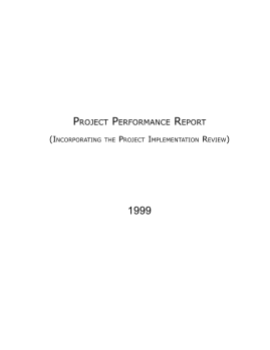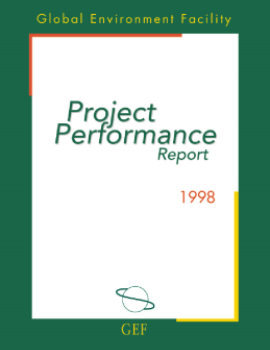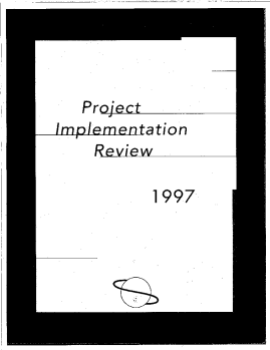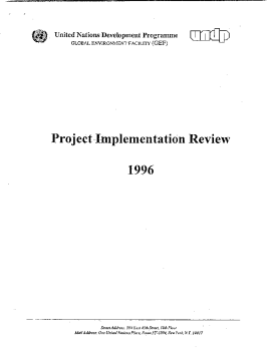The Project Performance Report (PPR), prepared by the GEF Monitoring and Evaluation Unit, presents the results of the 1999 Project Implementation Review (PIR), a monitoring process based upon reporting by the GEF Implementing Agencies (IAs) on all projects being implemented for at least one year as of June 1999. The PIR covers 135 projects.
The findings within PIRs are designed to help refine the GEF operation program, improve project design and management, identify scientific and technical questions for further consideration, and identify lessons learned and topics for further evaluation.
This PPR also draws on information about the performance of GEF programs from evaluations and other studies.
- The report includes the following general conclusions reached by the evaluation:
- Projects will achieve their objectives and be sustainable where the GEF also addresses the broader socioeconomic and political context and enabling environment in which they take place. However, there are obstacles and gaps in GEF's ability to translate this into practice.
- GEF-supported activities need to be integrated with national development priorities and programs and GEF needs to work on achieving this.
- GEF's work in stakeholder participation has been mixed; GEF may need to adjust its project cycle, project review criteria, and expectation for documentation to allow adequate time and resources to address this.
- GEF project instruments need to be longer term and more flexible in their approach to addressing global environmental problems.
- GEF needs to move away from an ‘approvals culture' toward greater attention on program results. M&E tools need to be more fully integrated into management practices and perspectives, more time spent on learning from implementation, strategic building on past successes, and feeding back GEF learning from other projects.



